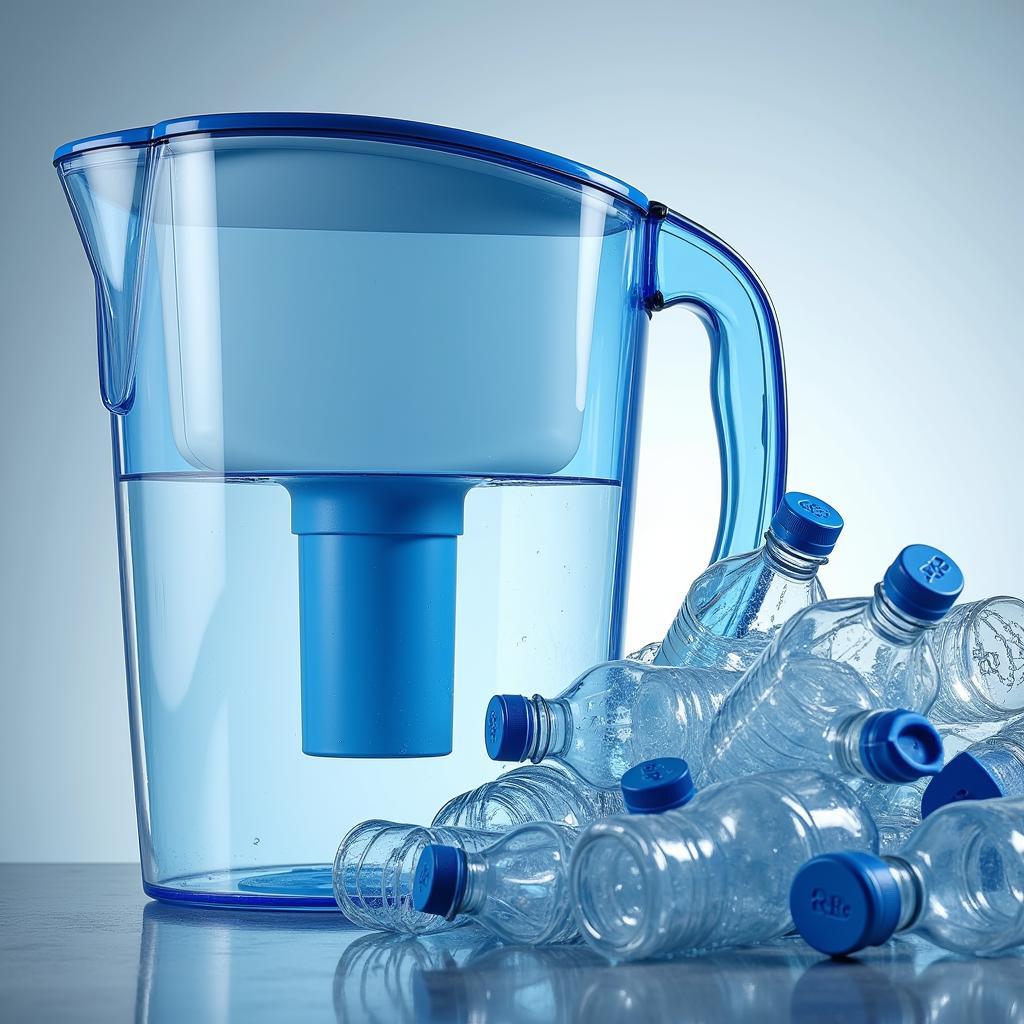Choosing between bottled water and tap water is a common dilemma. This article explores the pros and cons of bottled water vs. tap water, helping you make an informed decision for your hydration needs.
The Great Debate: Bottled Water vs. Tap Water
Convenience, taste, and perceived safety are often cited as reasons for choosing bottled water. However, cost, environmental impact, and potential health concerns are significant drawbacks. Tap water, on the other hand, is generally more affordable and environmentally friendly but may raise concerns about taste and purity depending on the local water supply. This detailed analysis of bottled water vs. tap water will help you weigh the benefits and disadvantages of each.
Bottled Water: Pros and Cons
Bottled water is readily available, making it a convenient choice when on the go. Many prefer the taste of bottled water, which can vary depending on the source and filtration process. Some bottled water is fortified with minerals, potentially offering health benefits.
However, the environmental cost of bottled water is substantial. Plastic bottles contribute to pollution and require significant resources for production and recycling. Moreover, bottled water can be significantly more expensive than tap water. The quality of bottled water can also vary, with some brands containing microplastics or other contaminants.
-
Pros:
-
Convenience
-
Taste preferences
-
Mineral content (in some brands)
-
Cons:
-
Environmental impact (plastic waste)
-
Cost
-
Potential for contamination
Tap Water: Pros and Cons
Tap water is significantly more affordable than bottled water. It’s also a much more sustainable choice, minimizing plastic waste and reducing the carbon footprint associated with production and transportation. In many developed countries, tap water is rigorously tested and regulated to ensure safety and quality.
However, the taste of tap water can vary depending on local water sources and treatment processes. Some people find the taste of chlorine or other minerals unpleasant. There can also be concerns about contamination from aging pipes or local pollutants, though this is less common in areas with well-maintained water infrastructure.
-
Pros:
-
Affordability
-
Environmental friendliness
-
Regulated safety standards
-
Cons:
-
Taste variations
-
Potential for local contamination (depending on area)
Which is Better: Bottled or Tap Water?
There’s no single answer to this question. The best choice depends on individual circumstances and priorities. If you prioritize convenience and taste, and are willing to pay a premium, bottled water might be your preference. However, if affordability, environmental responsibility, and access to safe, regulated water are your main concerns, tap water is generally the better option.
“The decision ultimately boils down to personal preference and access,” says Dr. Nguyễn Thị Thu Hà, a leading environmental scientist. “For most people in areas with reliable water infrastructure, tap water is a safe, cost-effective, and environmentally responsible choice.”
Making Tap Water Taste Better
If the taste of your tap water is a concern, there are several simple solutions. Using a water filter can improve the taste and remove impurities. Chilling water can also make it more palatable. Adding slices of lemon, cucumber, or other fruits can infuse a refreshing flavor.
“Simple filtration methods, like using a pitcher with a built-in filter, can drastically improve the taste and quality of tap water,” adds Mr. Phạm Văn Khải, a water quality specialist.
 Lọc nước tại nhà và chai nhựa bỏ đi
Lọc nước tại nhà và chai nhựa bỏ đi
Conclusion
The bottled water vs. tap water debate highlights the importance of considering both individual needs and the broader environmental impact. While bottled water offers convenience, tap water generally wins in terms of cost, sustainability, and accessibility to regulated quality. By understanding the pros and cons of bottled water vs. tap water, you can make a conscious choice that aligns with your values and keeps you hydrated.
FAQs
- Is tap water safe to drink? In most developed countries, yes. However, it’s always best to check with your local water authority for specific information about your area.
- How can I improve the taste of my tap water? Filtering, chilling, and adding fruits or herbs can enhance the flavor.
- Are there any health benefits to bottled water? Some brands contain added minerals, but these are often also found in tap water.
- Is bottled water regulated? Yes, but the regulations vary depending on location and brand.
- What’s the best way to dispose of plastic water bottles? Recycle them whenever possible.
- Is it okay to refill plastic water bottles? Repeated refilling can increase the risk of bacterial growth, so it’s generally not recommended.
- How much does bottled water cost compared to tap water? Bottled water can be hundreds of times more expensive than tap water.
Bottled Water vs Tap Water: Common Scenarios
- Scenario 1: At home, tap water is the most economical and environmentally friendly choice. Consider a filter if taste is a concern.
- Scenario 2: While traveling, bottled water might be more convenient, especially in areas with questionable water safety.
- Scenario 3: During outdoor activities, reusable water bottles filled with tap water are the most sustainable option.
Further Reading and Resources
For more information on water quality and safety in your area, contact your local water authority. You can also find numerous online resources comparing bottled water and tap water.
Khi cần hỗ trợ hãy liên hệ Số Điện Thoại: 02838172459, Email: truyenthongbongda@gmail.com Hoặc đến địa chỉ: 596 Đ. Hậu Giang, P.12, Quận 6, Hồ Chí Minh 70000, Việt Nam. Chúng tôi có đội ngũ chăm sóc khách hàng 24/7.